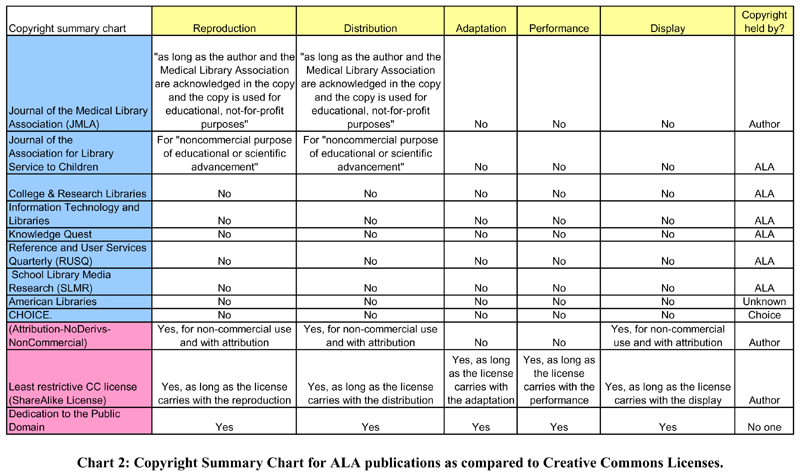The last 24 hours have been quite interesting! The feedback has been roaring in…99% positive, with a few corrections and questions sent my way. One gentleman from Canada pointed out my misuse of the term “schizophrenic” on page 8, which I appreciate. I was looking for something more along the lines of “hypocritically” and may have unintentionally misused the term.
I did receive one response from someone associated with the ALA, specifically Knowledge Quest (KQWeb, to be precise). Laura Pearle, the associate editor of KQWeb said:
“I read with interest your comments about Open Access and ALA. As Associate Editor for KQWeb, I am aware of their policies and it appears to me that you have misrepresented the ALA’s position. In your appendix you have copies of the two copyright agreements ALA offers. One does assign to ALA all rights. The other, however, only assigns limited rights (that of first publication) and the rest remain with the author. It is the author’s choice, not ALA’s, which agreement is signed….
…You might want to re-read the agreements and rework your thesis on the basis of that rereading. ”
I must say that I do not believe that I have misrepresented the ALA’s position (indeed, I think I have described that they don’t currently know their position, since they say one thing, and behave differently). As far as Knowledge Quest specifically, perhaps I was confused by the following passage on the “Instructions for Authors” portion of the KQ website , where it states:
“Copyright
A manuscript published in the journal is subject to copyright by the American Library Association for the American Association of School Librarians. Additional information about copyright policies is available from the ALA Office of Rights and Permission.”
That seemed a reasonably clear statement. If there is the opportunity for authors to retain copyright, perhaps this statement should be altered to reflect that.
